Occupational therapy program transitions to doctorate
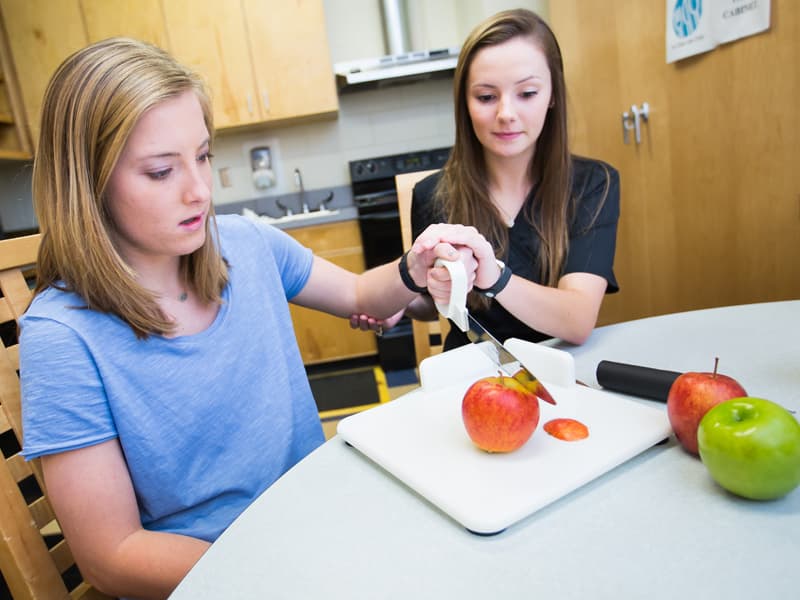
When the Board of Directors of the American Occupational Therapy Association released a position statement in April 2014 saying entry-level degree programs should consider transitioning to doctoral programs, faculty members in the Department of Occupational Therapy in the School of Health Related Professions took action.
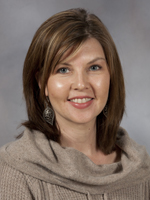
“We saw the importance of doing this for our profession, for our students and for consumers,” said Dr. Christy Morgan, department chair and professor of occupational therapy. “We decided that we wanted to be in the first wave of programs beginning to transition.”
Moving from a master’s to a doctoral entry-level program is not a simple endeavor. Soon after the statement was released – about the time the master’s program achieved 10-year, fully compliant reaccreditation – Morgan and her team got to work.
“There’s been 18 months or more of preplanning,” Morgan said. “It’s at least a five-year process to do it right.”
The preplanning process included getting approval from UMMC’s Program Administration Committee, the Institutions of Higher Learning board, Executive Council for SHRP, and the Accreditation Council for Occupational Therapy Education, also known as ACOTE.
This is not the first time the program has successfully transitioned degrees in order to keep up with changes in the field. The OT program at SHRP enrolled its first baccalaureate-level class in 1989 and received five-year accreditation in 1991. Morgan, herself, was a 1996 graduate of the bachelor’s program. In 2002, IHL approved the switch to a master’s entry-level OT program, and the first master’s students enrolled in 2003.
As with the previous transition, changes in the program mirror changes in the field of occupational therapy, health care and society in general.
“As providing care becomes increasingly more complex, more education is needed to prepare students to practice upon graduation,” Morgan said.
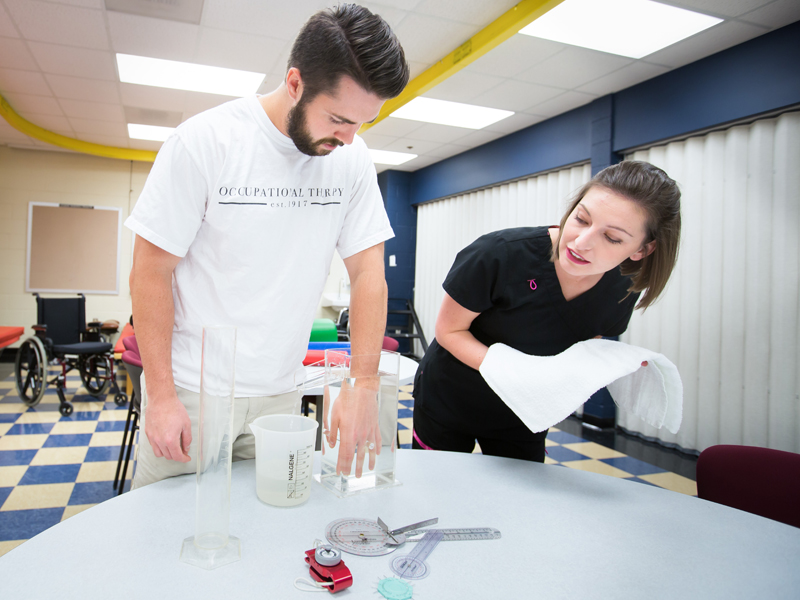
Although current programs have implemented training in evidence-based practice and providing care to patients with multiple chronic conditions, Morgan said the doctoral program will advance skills in these areas even further to better equip graduates to meet the increasing demands in the areas beyond what currently exists. Having a doctoral degree will also allow graduates a level of professional autonomy, something that is needed for taking on leadership roles in the health care delivery system.
The AOTA cited studies by the Carnegie Foundation as finding that as professions have “matured” they have evolved into higher degree programs. Since other rehabilitation professions such as physical therapy have already mandated a change in entry-level degree, it is important that occupational therapy advance the entry level degree as well.
“While this is but one example, we are deeply concerned that we could be seriously disadvantaged in the emerging health care environment if we don’t have the educational equivalent of our peers in the other health care professions,” the AOTA Board of Directors said.
With the addition of requirements focusing on “primary care, interprofessional care teams and specialization in practice,” many master’s level programs are bursting at the seams. While master’s programs across the nation are typically only two years in length, Morgan said that UMMC has had the luxury of training students over a three year period. Adding an additional year to the program would make UMMC less competitive in a market where similar doctoral programs are three years long.
“We were challenged because we currently have a pretty stout three-year master’s program,” Morgan said. The team did extensive study of the curriculum to find ways to increase content without adding years.
“We identified topics to merge, semesters to grow, and also items that might no longer be necessary,” she said.
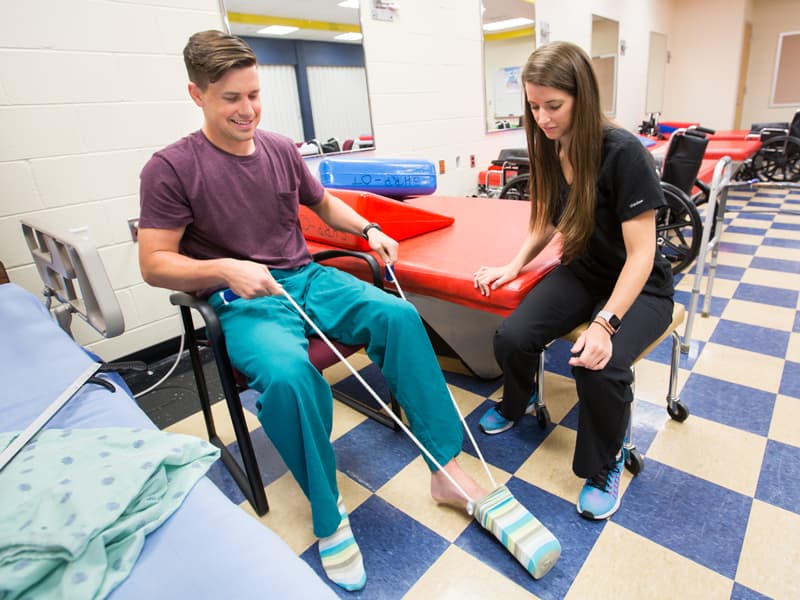
Adding an experiential component is one of the mandates in order for a program to receive AOTA accreditation. The OT department added a 16-week “specialty internship” to the third year.
“The experiential components are above and beyond what a student would have to master for the core, entry-level skills of an OT practicing day-to-day with a client,” Morgan said. “Specialty internships have to go beyond basic clinical skills.”
The department has developed four tracks from which to choose: advanced clinical, research/education, administration/leadership and community health. A student who chooses the administration/leadership track may be placed with a director of a rehabilitation center to learn the ins and outs of management in the OT environment.
“Many of our students are walking out the door and stepping into management roles,” Morgan said. “They will benefit from this added training.”
What does this mean for current students in the master’s program?
Megan Ladner is a licensed OT and assistant professor of occupational therapy at SHRP. She was part of the last class to receive a bachelor’s degree in OT at UMMC and remembers her thoughts at the time of the program’s transition to master’s.
“I was concerned at first because I didn’t know how that would affect my ability to get a job or be competitive in the workforce,” Ladner said. “I knew that I had a good foundation and knew I was getting the instruction and knowledge base to be able to pass my boards to practice. Once I was licensed, I was immediately able to get a job.”
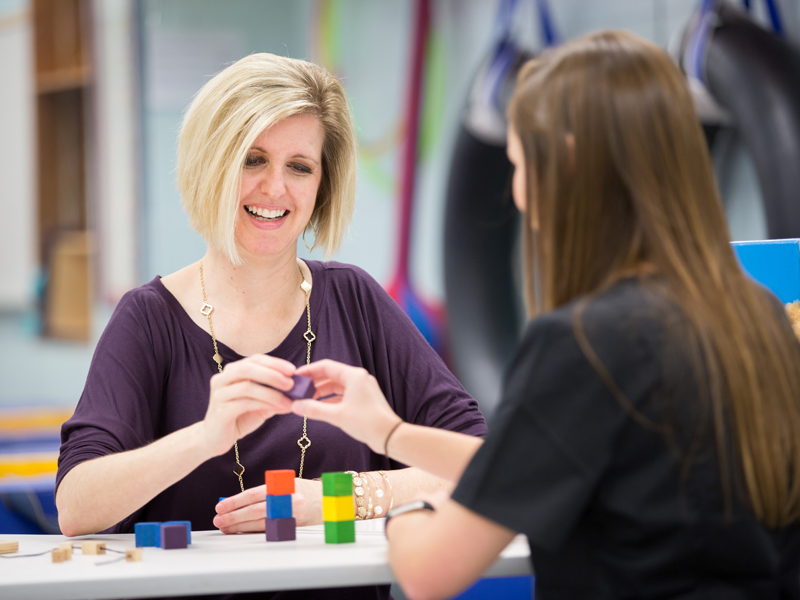
She started providing school-based therapy and decided to pursue a master’s degree in early childhood development with a specialty in early intervention.
“I would encourage today’s students to not be concerned about not being able to find a job,” Ladner said. “I have friends who have never pursued a master’s degree, and they are still able to find satisfying work today. Yes, the therapists graduating after them will hold a higher degree, but the therapists with the master’s will have the experience that comes from years in the workforce.”
Students entering the doctoral program must hold a bachelor’s degree. They also are required to have taken about 24 to 26 hours of prerequisites related to health care, for example psychology, anatomy and physiology with a lab, and advanced physical or biological science, among others.
The department submitted the plan for implementing the doctoral program to ACOTE in August. Students will be admitted into the program once ACOTE reviews the plan and grants candidacy status. The program is currently accepting applications until January 2018, by which time the candidacy status should be granted.
“We have a strong record of good accreditation experiences,” Morgan said. “I feel confident about our candidacy application.
Morgan said that during the doctoral program’s first three years, it will have to meet milestones and share data with the accrediting body. A final self-study will be submitted prior to the first class graduating, followed by a site visit for the final stamp of approval.
“That first class will be under great scrutiny all the way through in order to make sure that we are implementing the plan that we submitted in the candidacy application,” she said.
The Class of 2021 is anticipated to be the first to graduate from a fully-accredited Doctor of Occupational Therapy program in Mississippi.
Those interested in applying for the Doctor of Occupational Therapy program at UMMC should visit the website for more information.


